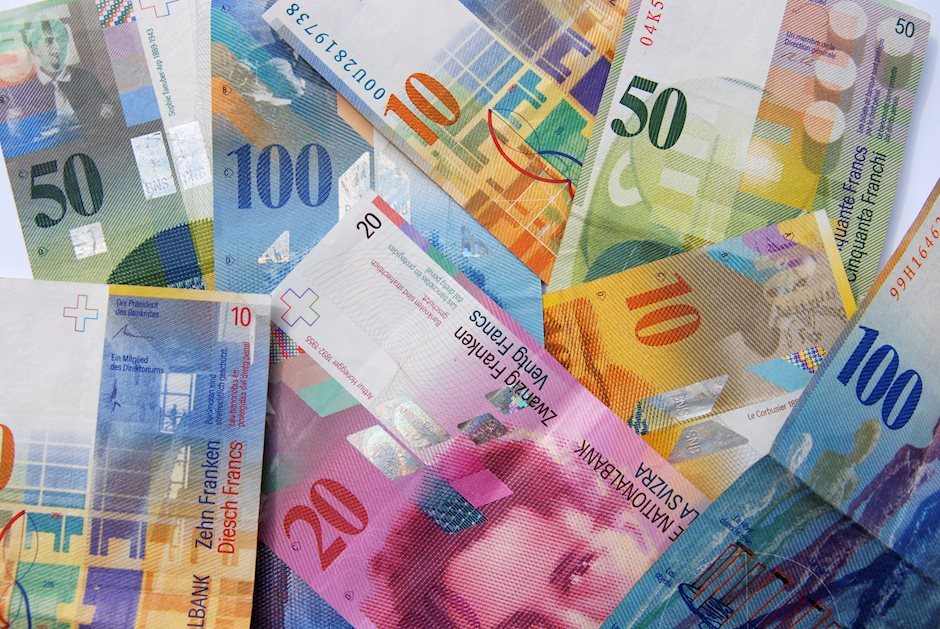USD/CHF falls toward 0.8400 ahead of ZEW Swiss Survey Expectations
- USD/CHF faces challenges due to rising dovish sentiment surrounding the Fed’s policy outlook.
- The weaker US Consumer Confidence Index contributes to dovish expectations for the Fed for its upcoming policy decisions.
- The Swiss Franc may struggle as SNB is expected to implement a 25 basis point rate cut on Thursday.

USD/CHF extends its losses for the third successive day, trading around 0.8420 during the Asian hours on Wednesday. This downside of the pair could be attributed to the subdued US Dollar (USD) following the strengthening dovish sentiment surrounding the US Federal Reserve’s (Fed) policy outlook.
On Tuesday, the weaker US consumer confidence data added to dovish expectations for the Federal Reserve (Fed) for its upcoming policy decisions. US Consumer Confidence Index fell to 98.7 in September from a revised 105.6 in August. This figure registered the biggest decline since August 2021.
However, Federal Reserve Governor Michelle Bowman stated on Tuesday that key inflation indicators are still "uncomfortably above" the 2% target, urging caution as the Fed moves forward with interest rate cuts. Despite this, she expressed a preference for a more conventional approach, advocating for a quarter percentage point reduction.
The downside of the USD/CHF pair could be restrained as the Swiss Franc (CHF) may receive downward pressure as the Swiss National Bank (SNB) is expected to lower rates by 25 basis points (bps) on Thursday. Additionally, the probability of a 50-bps cut has increased, with markets now seeing a one-in-three chance, up from zero a month ago.
Traders will likely observe the ZEW Survey – Expectations (Sep) scheduled to be released on Wednesday, which may provide insights into the business and employment conditions in Switzerland.
Swiss Franc FAQs
The Swiss Franc (CHF) is Switzerland’s official currency. It is among the top ten most traded currencies globally, reaching volumes that well exceed the size of the Swiss economy. Its value is determined by the broad market sentiment, the country’s economic health or action taken by the Swiss National Bank (SNB), among other factors. Between 2011 and 2015, the Swiss Franc was pegged to the Euro (EUR). The peg was abruptly removed, resulting in a more than 20% increase in the Franc’s value, causing a turmoil in markets. Even though the peg isn’t in force anymore, CHF fortunes tend to be highly correlated with the Euro ones due to the high dependency of the Swiss economy on the neighboring Eurozone.
The Swiss Franc (CHF) is considered a safe-haven asset, or a currency that investors tend to buy in times of market stress. This is due to the perceived status of Switzerland in the world: a stable economy, a strong export sector, big central bank reserves or a longstanding political stance towards neutrality in global conflicts make the country’s currency a good choice for investors fleeing from risks. Turbulent times are likely to strengthen CHF value against other currencies that are seen as more risky to invest in.
The Swiss National Bank (SNB) meets four times a year – once every quarter, less than other major central banks – to decide on monetary policy. The bank aims for an annual inflation rate of less than 2%. When inflation is above target or forecasted to be above target in the foreseeable future, the bank will attempt to tame price growth by raising its policy rate. Higher interest rates are generally positive for the Swiss Franc (CHF) as they lead to higher yields, making the country a more attractive place for investors. On the contrary, lower interest rates tend to weaken CHF.
Macroeconomic data releases in Switzerland are key to assessing the state of the economy and can impact the Swiss Franc’s (CHF) valuation. The Swiss economy is broadly stable, but any sudden change in economic growth, inflation, current account or the central bank’s currency reserves have the potential to trigger moves in CHF. Generally, high economic growth, low unemployment and high confidence are good for CHF. Conversely, if economic data points to weakening momentum, CHF is likely to depreciate.
As a small and open economy, Switzerland is heavily dependent on the health of the neighboring Eurozone economies. The broader European Union is Switzerland’s main economic partner and a key political ally, so macroeconomic and monetary policy stability in the Eurozone is essential for Switzerland and, thus, for the Swiss Franc (CHF). With such dependency, some models suggest that the correlation between the fortunes of the Euro (EUR) and the CHF is more than 90%, or close to perfect.
Author

Akhtar Faruqui
FXStreet
Akhtar Faruqui is a Forex Analyst based in New Delhi, India. With a keen eye for market trends and a passion for dissecting complex financial dynamics, he is dedicated to delivering accurate and insightful Forex news and analysis.

















